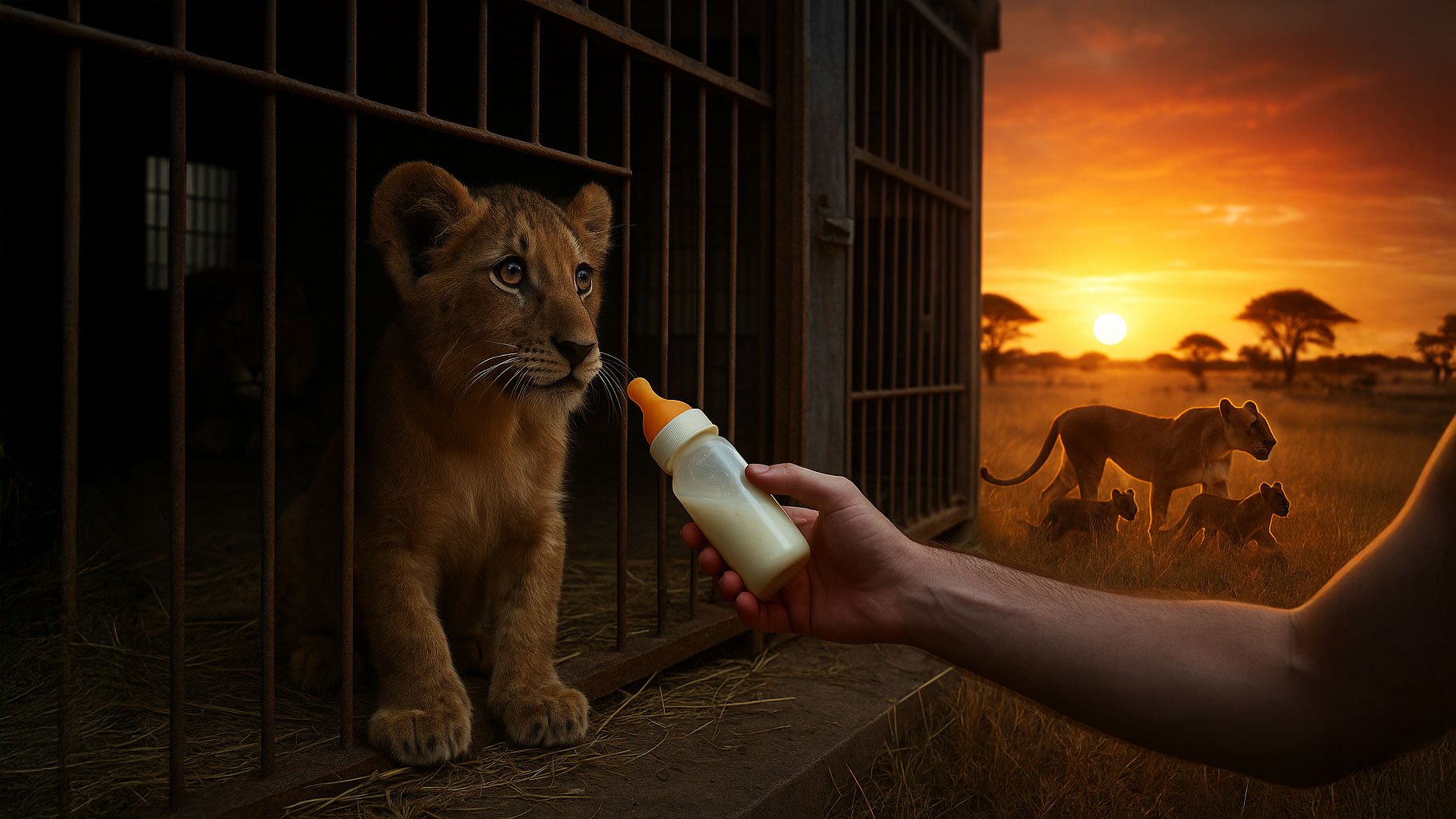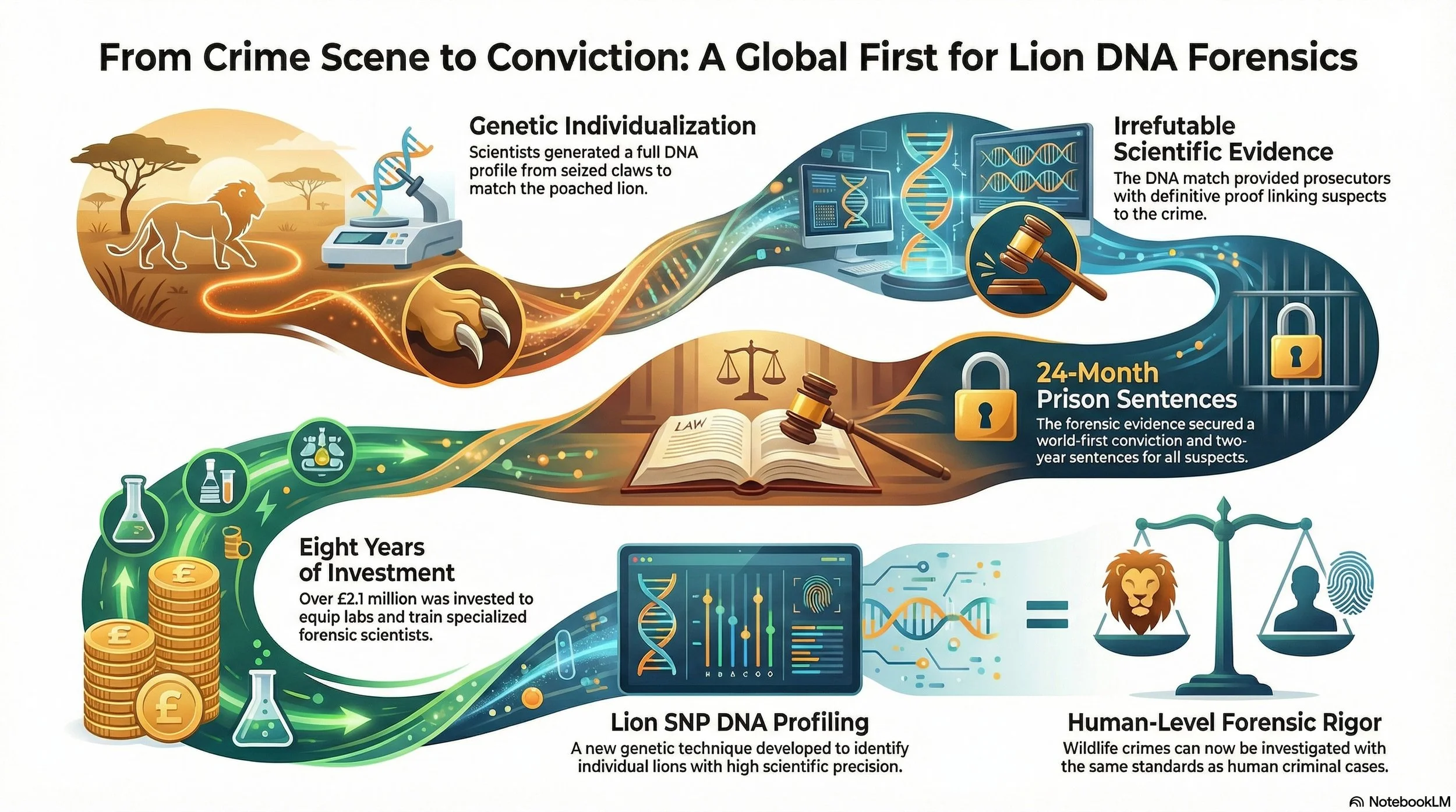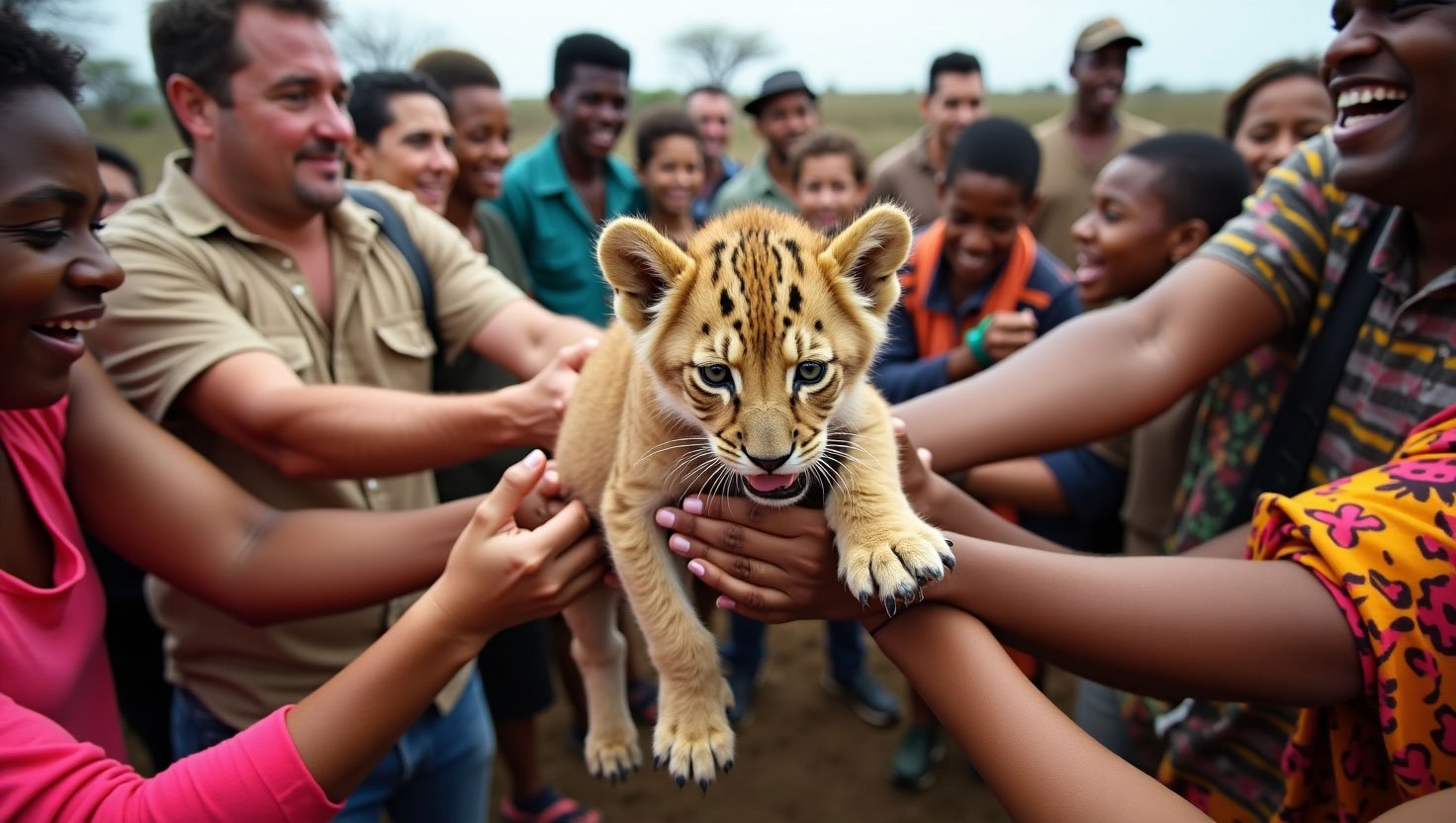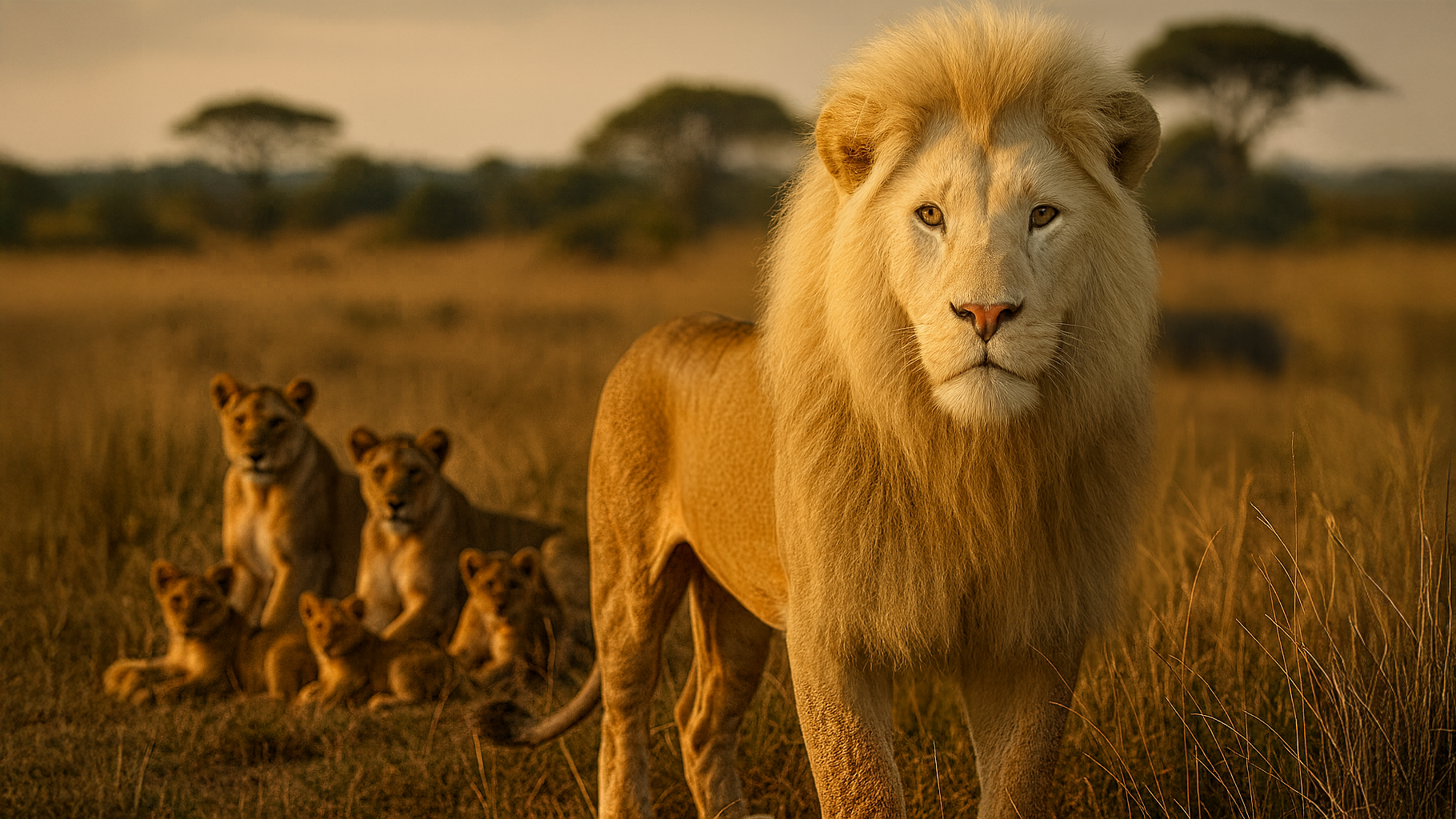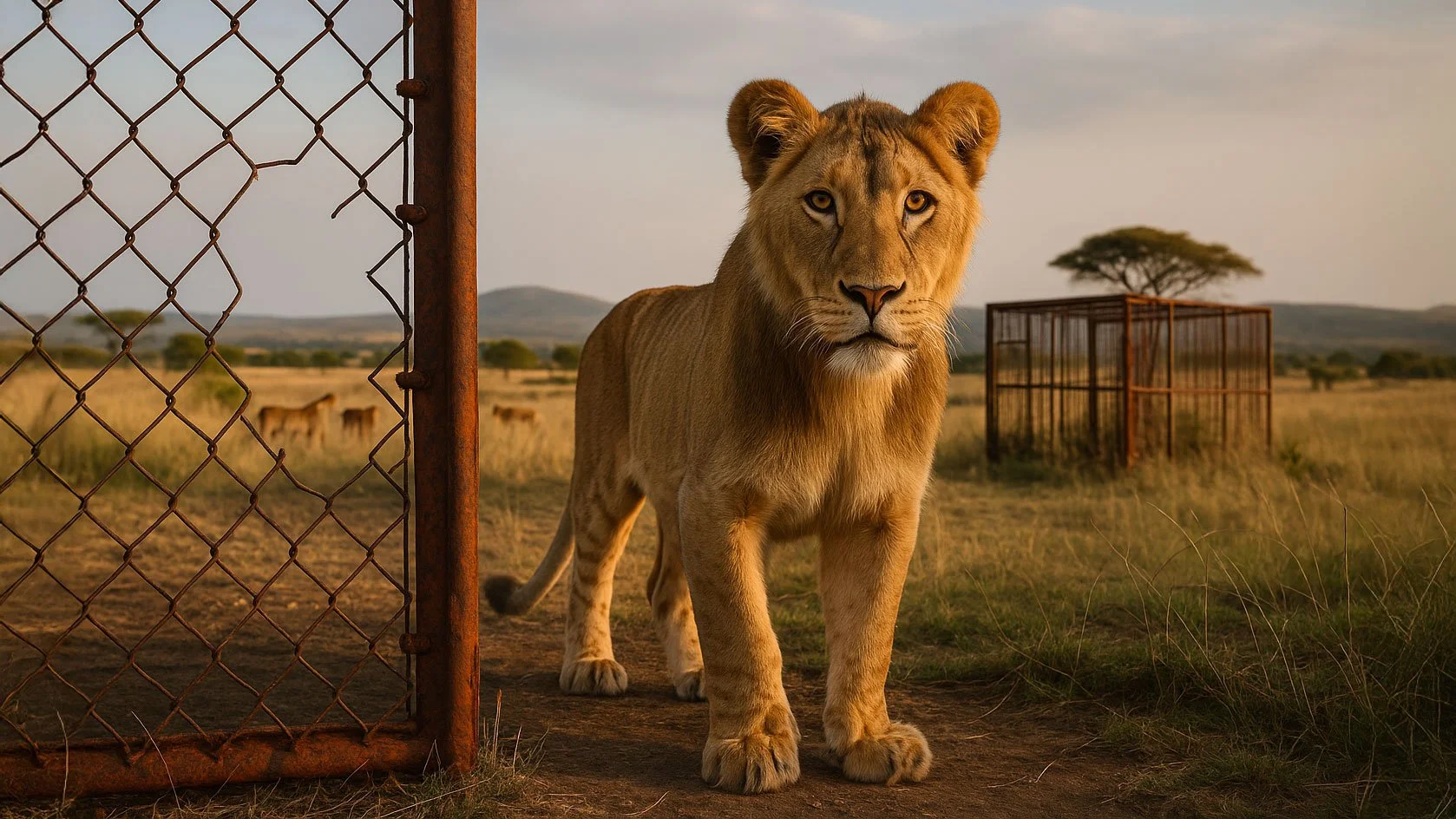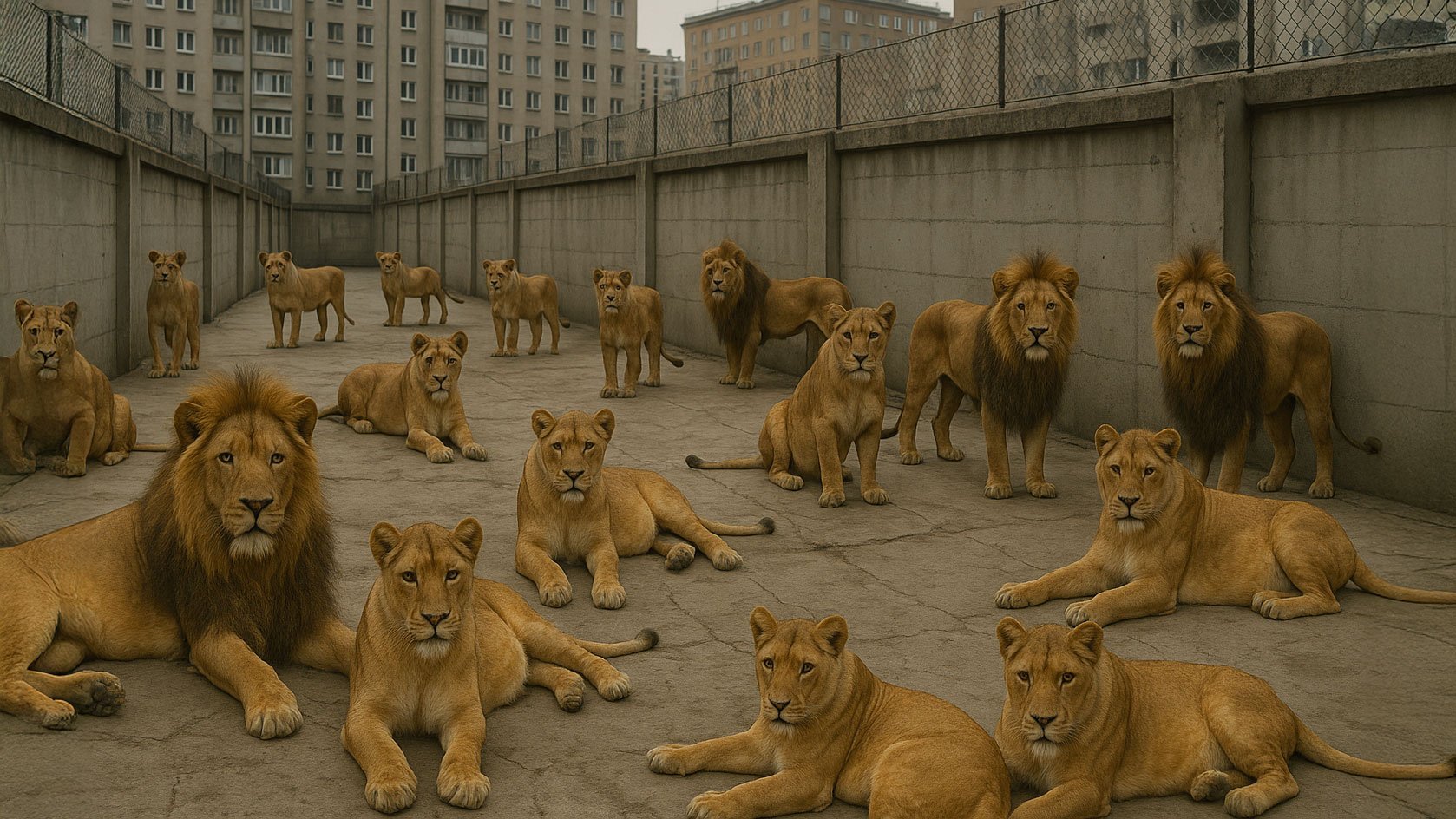Cuddle Me, Kill Me: The Fight to End South Africa’s Captive Lion Crisis
There is a place where dreams of Africa come in velvet paws and golden eyes. Tourists arrive in safari gear, hearts fluttering, ready to bottle-feed a lion cub or walk side by side with a king of the jungle. They believe they’re supporting conservation. They believe these lions will one day run free.
But behind the gentle purrs and sunlit snapshots lies a staggering truth: many of these lions are born into captivity only to die for profit.
A $180 Million Illusion
South Africa is home to over 8,000 captive lions—more than double the wild population—kept in more than 500 facilities. These lions aren’t rescued, rehabilitated, or rewilded. They are bred en masse, torn from their mothers within days, and sold into a supply chain fueled by cub petting, voluntourism scams, canned hunts, and the global bone trade.
According to investigative journalist and filmmaker Richard Peirce, who has documented the industry in Lions, Bones and Bullets and Cuddle Me, Kill Me, the deception runs deep. Tourists who think they’re “saving lions” are often propping up a brutal business where the same lions they bottle-fed may be sold for bones or shot in staged hunts when they outgrow their usefulness.
Even South Africa’s own government can’t keep up. Despite pledges to shut the industry down, numbers continue to rise. In 2023, a ministerial task force estimated 7,400 captive lions. By late 2024, it was 8,000.
The True Cost of Captivity
Peirce and economist Dr. Ross Harvey estimate the captive lion industry brings in $26 million to $180 million annually—depending on what you count. That includes cub petting and faux conservation projects, but not the dark underbelly: bone sales. Since 2008, 8,761 lion skeletons have been legally exported, and illegal sales are likely far higher.
A single skeleton can earn over $2,400, and the industry has become a convenient disposal method for lions no longer profitable for photos or hunts.
As if that weren’t grim enough, Harvey revealed that South African hunting operations ran out of shootable males in 2024, a sign that demand is outpacing even this massive supply.
Greenwashing the Cruelty
Instead of closing, the industry is rebranding.
Some large breeders now promote tighter regulations—not to protect lions, but to outcompete smaller petting zoos and breeders who tarnish their image. They lobby for “better husbandry” and stricter licenses, not to end the exploitation, but to clean it up for tourism optics.
But even this effort reveals how broken the system is. Permits to breed lions in South Africa cost as little as R50 to R100 (about $2.50 to $5.00 USD). There are no uniform national standards, and provinces defer responsibility endlessly. The result is an unregulated mess of suffering.
Conservation or Compromise?
Conservationists like Karen Trendler and Linda Park argue that while the only moral solution is to shut the industry down, South Africa’s cash-strapped government may lack the political will and funds to compensate breeders. Lawsuits are already in motion, and if breeders win, lions will keep dying—for years.
This is why some are calling for a pragmatic phased approach: raising standards, banning cub petting and lion walks, and slowly cutting off the supply chain by targeting the weakest links.
But others say that’s not enough. Harvey warns that no version of “fair chase” can apply to captive-bred lions. These cats have never learned to fear humans. They’re like dogs in a park—only their playmates carry rifles.
The Rise of Ethical Tourism
While politicians hesitate, tourists are leading the charge. Millennials and Gen Z travelers are rejecting animal exploitation. The global market for ethical tourism—already worth $273.8 billion—is growing at nearly 6% per year.
That growth is fueled by awareness. By documentaries like Lions, Bones and Bullets. By whistleblowers. By advocates. By YOU.
Carole Baskin says, “Big Cat Rescue no longer houses cats in cages. Instead, we’re turning our full force toward ending the causes of captivity. That means funding education, empowering whistleblowers, and working with partners around the world to protect wild cats where they belong—in the wild.”
✨ What You Can Do
🛑 Say no to cub petting, lion walks, and volunteer jobs at facilities with baby animals.
🎒 Support ethical tourism that protects wildlife in their natural habitats.
📢 Raise awareness—most travelers still don’t know the truth.
🧡 Donate to organizations like Big Cat Rescue that work to end captivity and protect wild cats.
Because the lion’s roar was never meant to echo from behind bars. Let’s help it ring out from the savannah once more.
Read more: https://www.msn.com/en-za/news/other/the-rise-of-ethical-tourism-confronting-south-africa-s-captive-lion-industry/ar-AA1Ettfz
